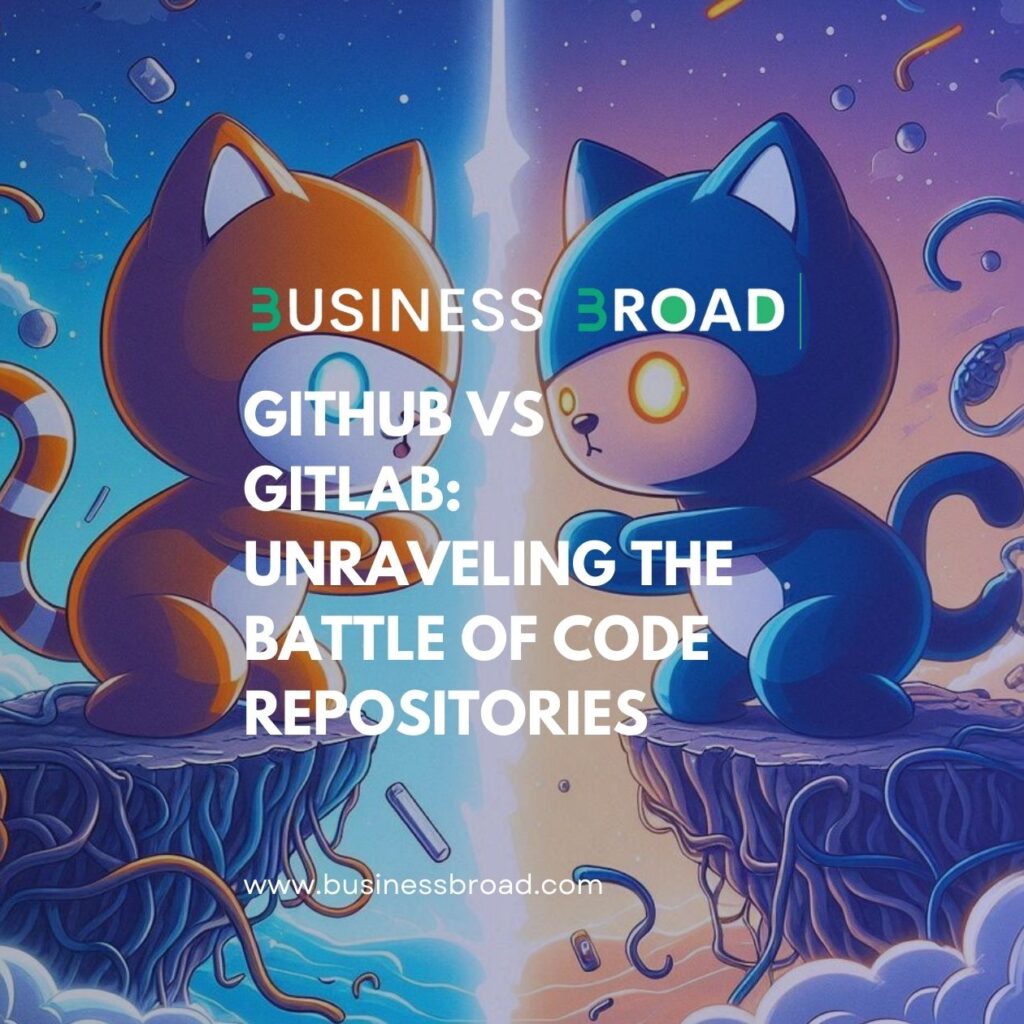In the dynamic landscape of software development, choosing the right code management platform can significantly impact your project’s success. Enter the ring: GitHub versus GitLab. These two heavyweight contenders offer distinct features, each catering to different needs. In this blog, we’ll dissect their strengths, weaknesses, and help you decide which platform packs the knockout punch for your development journey.

Introduction to Git and Cloud-based Repositories
Before we compare GitHub and GitLab, let’s briefly touch on Git and its role in software development. Git is a distributed version control system (VCS) that simplifies collaboration, code tracking, and modification management. Both GitHub and GitLab are cloud-based Git repositories that leverage Git for version control.
GitHub: User-Friendly and Community-Driven
- Pros:
- User-friendly interface: GitHub’s clean and intuitive interface makes it easy for developers to navigate.
- Extensive community support: With around 56 million users, GitHub has a robust community.
- Straightforward collaboration features: Ideal for small teams and individual developers.
- Cons:
- Limited automation tools: GitHub relies on third-party apps for CI/CD integration.
GitLab: Comprehensive DevOps Platform
- Pros:
- Integrated tools for automation: GitLab provides native CI/CD pipelines, making it an all-in-one solution.
- Permission management: You can set and modify user roles within GitLab.
- Preferred by Java developers: GitLab is popular among Java developers.
- Cons:
- Learning curve: GitLab’s interface may be slightly more complex for new users.
- Smaller user base: GitLab has over 31 million users but has its own niche.
Which One to Choose?
- GitHub:
- Best for small teams or individual developers.
- User-friendly, community-driven, and straightforward.
- Consider it if you prioritize ease of use and collaboration.
- GitLab:
- Comprehensive DevOps platform.
- Integrated automation tools, permission management, and native CI/CD pipelines.
- Suitable for small teams seeking an all-in-one solution.
Some Real-World Examples of Companies using GitHub
GitHub is widely adopted by companies and developers worldwide. Here are some notable examples:
- Airbnb: The popular online marketplace for lodging and travel experiences uses GitHub for version control and collaborative development.
- Shopify: As an e-commerce platform, Shopify leverages GitHub to manage its extensive codebase and streamline collaboration among developers.
- Netflix: The entertainment streaming giant relies on GitHub for efficient code management, version control, and collaboration across its engineering teams.
- CrankWheel: CrankWheel, a screensharing software company, also utilizes GitHub for their business.
These examples demonstrate how GitHub plays a crucial role in software development, fostering collaboration, transparency, and efficient code management.
In the ever-evolving tech arena, the choice between GitHub and GitLab isn’t just about platforms; it’s about aligning with your team’s goals and project requirements. Whether you’re drawn to GitHub’s community-driven simplicity or GitLab’s comprehensive DevOps suite, remember that both platforms empower developers worldwide. So, pick your side, commit your code, and may your repositories thrive!
Path to Information Security Careers in 2024 :Tips
AI Showdown: Copilot, Gemini, ChatGPT 3.5, Mistral, & Claude





2 Comments
[…] GitHub vs GitLab: Unraveling the Battle of Code Repositories […]
[…] GitHub vs GitLab: Unraveling the Battle of Code Repositories […]